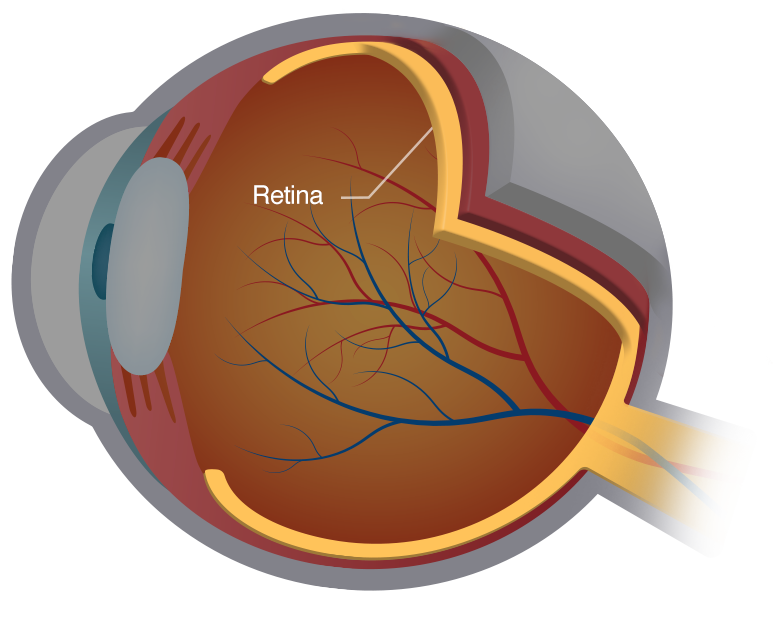Retinal Diseases Blindness

Here, our team at Retina Associates in Kansas City, MO discusses retinal diseases and blindness and explains the importance of proactive eye care.
What Does the Retina Do?
The retina is a thin layer of cells that lines the inside of your eye. Comprised of millions of tiny light-sensitive rods and cones, the retina is responsible for organizing visual information and transmitting it through the optic nerve to the brain.
Retinal diseases can be dangerous, causing severe vision loss or total blindness if left untreated. In many cases, proper treatment can halt or slow the disease and preserve, enhance, or completely restore your vision.
Symptoms of Retinal Diseases
Most retinal diseases and conditions share similar symptoms. These warning signs may include:
- Floating specks, dots, or “cobwebs” in your vision
- Distorted or blurred vision
- Loss of peripheral vision
- Total blindness
Types of Retinal Diseases and Conditions
There are several types of retinal diseases and conditions. Some of the most common include:
- Retinal tear: The eyeball is filled with a gel-like substance called vitreous. If the vitreous shrinks, it can pull on the retina and cause a tear in the thin layer of tissue.
- Retinal detachment: This condition is caused by an accumulation of fluid under the retina. In many cases, fluid can pass through a retinal tear and cause the retina to pull away from the underlying tissues.
- Macular hole: Defined as a small defect in the center of the retina, a macular hole may occur as the result of an injury or it may be caused by strain between the retina and the vitreous.
- Macular degeneration: This condition causes the central portion of the retina to deteriorate. Tell-tale symptoms include a blind spot in the center of the visual field and blurred vision.
- Diabetic retinopathy: Individuals with diabetes have a higher risk for vision problems. Diabetic retinopathy is a condition in which the capillaries in the back of your eye break down and leak fluid under the retina. As a result, the retina swells, causing your vision to distort.
- Epiretinal membrane: This condition is characterized by a cellophane-like membrane that lays on top of the retina. The membrane can pull up on the retina and cause your vision to blur.
- Retinitis pigmentosa: This degenerative disease can have a negative impact on the retina.
Early Treatment Is Key
When it comes to retinal conditions, damage that has already occurred typically cannot be reversed. That is why it is so important to seek the care of an experienced ophthalmologist as soon as you notice a problem. The treatment recommended for you will depend on your unique needs and situation. Our doctors can discuss your options with you during a visit to our office.
Contact Retina Associates Today
If you notice floaters, flashes, or other sudden changes to your vision, call us right away. Prompt treatment can address the problem right away and prevent your vision from worsening. Contact us online or call our office at (913) 831-7400.
